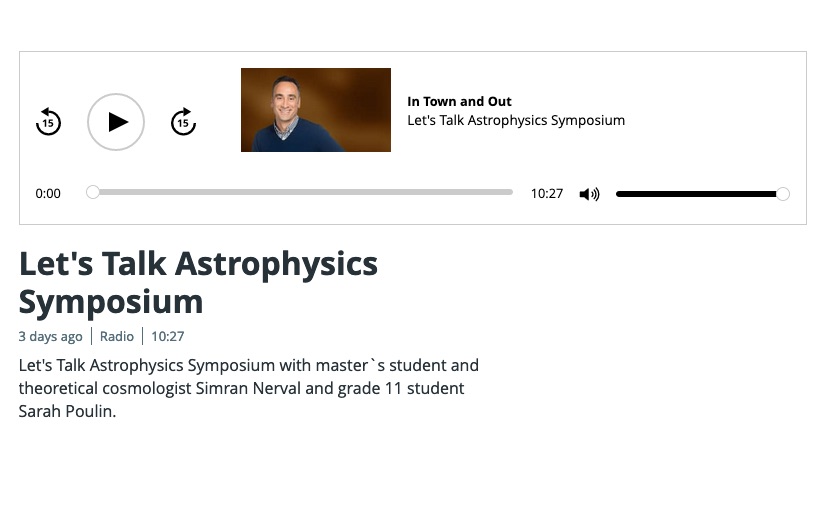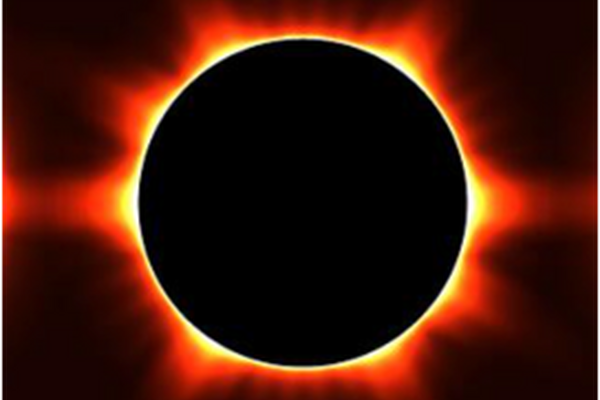
On February 20 and 21, a 2 day virtual symposium called Let's Talk Astrophysics was held to attract high school students to astrophysics and the natural sciences. The event was featured on the CBC's In Town and Out. Below is a summary after speaking to Benjamin Tam, Queen's physics PhD candidate and founder of the IDEAS Initiative.
======
Last weekend, the IDEAS Initiative in collaboration with Let's Talk Science at Queen's University ran Let's Talk Astrophysics, a high school symposium about astrophysics. The event was incredibly successful, with over 300 unique participants. The symposium was aimed towards fostering Canadian high school students to have an interest in advancing into the natural sciences while exposing them to a maximally diverse set of volunteer physicists.
On the first day, the symposium featured a number of talks by faculty from around the world, along with a panel of researchers from different career stages. The host, Queen's physics alumni Nathalie Ouellette (PhD '16), was particularly popular and highly praised in the student reviews. Queen's physics grad students Yilda Boukhtouchen and Matt Frosst answered over 150 science questions that were not passed onto the speakers in incredible depth.
On the second day, the students separated into 20 small groups and performed data analysis on observatory data in order to produce dark matter galactic rotation curves. Each group was directly led by a team of 2 physicists. In all, 40 volunteers ranging from undergraduate researchers such as Ashley Micuda (QU '22) to Queen's faculty such as Sarah Sadovoy were paired up to create teams of roughly equal skill and experience. Queen's physics grad student Mark Anderson was indispensable in the set-up and support of the computing resources. McDonald Institute Outreach and Education Officer Mark Richardson and Queen's physics grad student Patrick Hatch put together an excellent take-home package for the students.
The symposium was a culmination over 6 months of preparation of organization, with a number of key physics grad students who had fundamental roles in the development of the programming. In particular: Nikhil Arora, Karen Macías Cárdenas, Dilraj Ghuman, Yilda Boukhtouchen. The IDEAS Initiative worked closely in collaboration with Let's Talk Science, who was indispensable in the organization, advertisement, and infrastructure of the event. In particular: Jasmine Buddingh (Chemistry grad student), Amanda Rigg (Chemical Engineering grad student), Olivera Kralj (Physiology grad student), Nicole Winter (Regional Coordinator of Let's Talk Science).
Queen's physics grad student Simran Nerval was the Chief Organizer of the symposium. She directed and organized both the 40 volunteer physicists and the development of the programming. As an executive on the IDEAS Initiative and the local coordinator of Let's Talk Science at Queen's University, she was not only integral to the collaboration between the two organizations, but the successful delivery of the symposium itself.
 Queen's 2015 Nobel Prize in Physics
Queen's 2015 Nobel Prize in Physics

